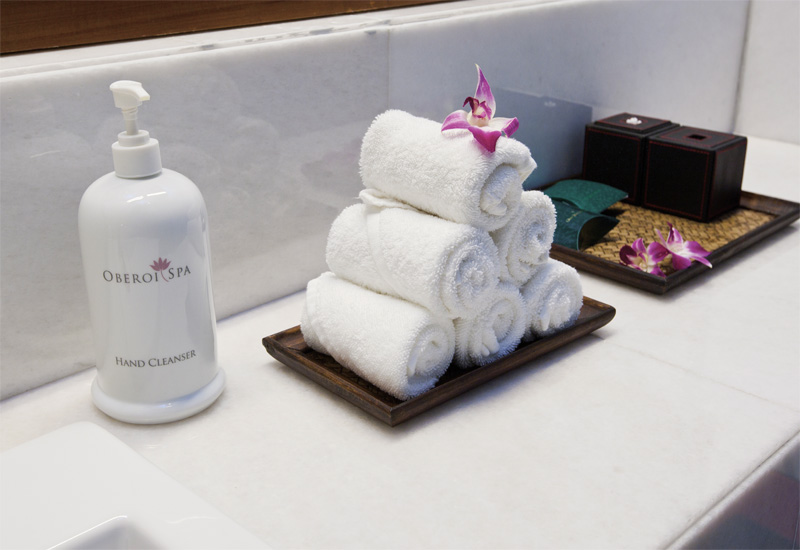Q: HOW DOES THE AMENITY BUSINESS IN THE MIDDLE EAST DIFFER FROM ELSEWHERE?
HELLFRITZ: My experience is that the owner or ownership groups are more involved than their counterparts in Europe. Their participation in the decision and purchasing process often ensures a much better value to price ratio where the monies spent are viewed more as an investment versus a mere expenditure. They know the value of quality.
NICOLAS KONIG: The Middle East market in comparison with the rest of the world is enjoying steady growth and occupancies are still high. Furthermore, the region offers much more luxury and a large variety of accommodation, therefore in-room amenities benefit from this market.
TR: The Middle East is a unique market with strong preferences in terms of brands, fragrances and presentation. The strong presence of the major luxury brands in the retail sector reflects in the hospitality sector too. The guests are very specific about their choice of amenities and brands so the market is very competitive.
CROSSAN: The Middle East is driven more by brand recognition, they also prefer larger sizes and a wider range of accessory items including luxury turndown gifts for VIP guests and suites. Guerlain have captured this with their newly launched VIP box which includes a 100ml bottle of the Eau de Cologne Imperiale perfume which was originally created for French royalty in 1853 by Pierre Francois Pascal Guerlain.

| Advertisement |
HADLER: In the Middle East, the luxury segment is most significant, everything has to have lots of ‘bling’, more gold, more glamorous. Western Europeans tend to prefer understated elements. Where fragrances are concerned, the markets also vary from each other. Fresh, citrus-oriented aromas dissipate quickly in warm climates. That is why people in the Middle East prefer the heavier, vanilla-dominated notes with plenty of ambergris and musk. The opposite is true for Asian people. They favour subtle, elegant scents with delicate floral notes.
Article continues on next page ...









 Search our database of more than 2,700 industry companies
Search our database of more than 2,700 industry companies









